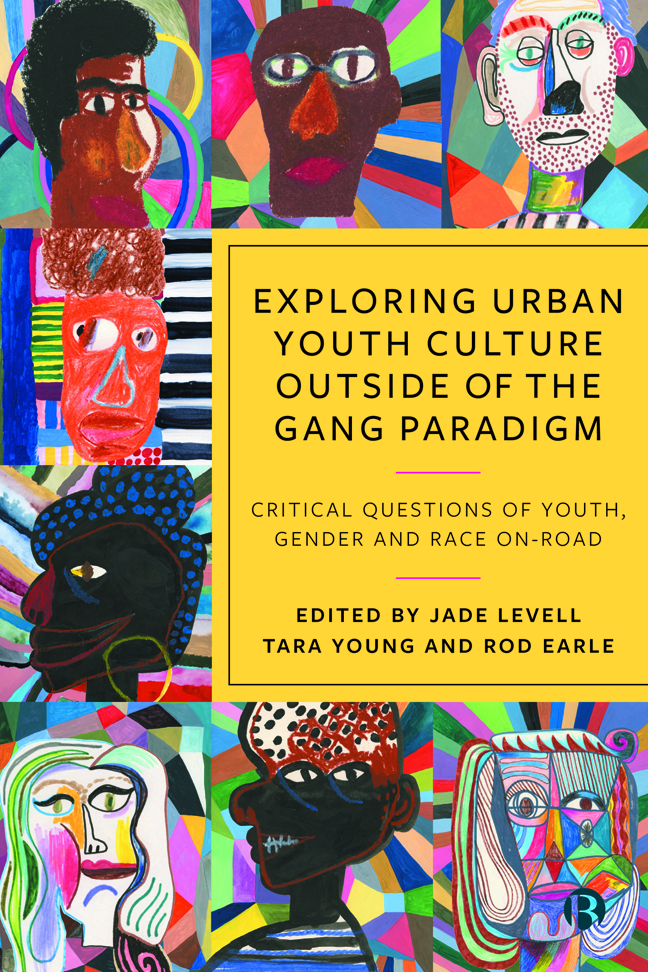 Exploring Urban Youth Culture Outside of the Gang Paradigm
Exploring Urban Youth Culture Outside of the Gang Paradigm Book contents
- Frontmatter
- Contents
- Notes on Contributors
- Foreword
- Preface
- 1 Introduction: Youth and On-Road – Making Gender and Race Matter
- 2 Black, British Young Women On-Road: Intersections of Gender, Race and Youth in British Interwar Youth Penal Reform
- 3 Tainted Love: Intimate Relationships and Gendered Violence On-Road
- 4 (The) Trouble with Friends: Narrative Stories of Friendship and Violence On-Road
- 5 The Sexual Politics of Masculinity and Vulnerability On-Road: Gender, Race and Male Victimisation
- 6 The Road, in Court: How UK Drill Music Became a Criminal Offence
- 7 On-Road Inside: Music as a Site of Carceral Convergence
- 8 Jeta e Rrugës: Translocal On-Road Hustle, Within and from Albania
- 9 ‘He's shown me the road’: Role Model and Roadman
- 10 Diary of an On-Road Criminologist: An Auto-Ethnographic Reflection
- 11 Conclusions, Compromises and Continuing Conversations
- Index
2 - Black, British Young Women On-Road: Intersections of Gender, Race and Youth in British Interwar Youth Penal Reform
Published online by Cambridge University Press: 24 January 2024
- Frontmatter
- Contents
- Notes on Contributors
- Foreword
- Preface
- 1 Introduction: Youth and On-Road – Making Gender and Race Matter
- 2 Black, British Young Women On-Road: Intersections of Gender, Race and Youth in British Interwar Youth Penal Reform
- 3 Tainted Love: Intimate Relationships and Gendered Violence On-Road
- 4 (The) Trouble with Friends: Narrative Stories of Friendship and Violence On-Road
- 5 The Sexual Politics of Masculinity and Vulnerability On-Road: Gender, Race and Male Victimisation
- 6 The Road, in Court: How UK Drill Music Became a Criminal Offence
- 7 On-Road Inside: Music as a Site of Carceral Convergence
- 8 Jeta e Rrugës: Translocal On-Road Hustle, Within and from Albania
- 9 ‘He's shown me the road’: Role Model and Roadman
- 10 Diary of an On-Road Criminologist: An Auto-Ethnographic Reflection
- 11 Conclusions, Compromises and Continuing Conversations
- Index
Summary
Introduction
This chapter develops from the analytical logic of being ‘on-road’. Used by racialised, urban male youth, the logic of ‘on-road’ characterises the contemporary street as a space for both discrete individual transformation and wider social participation (Honneth, 1995). Being ‘on-road’ references activity constituted by youth's co-option of the road, a ‘disenfranchised social milieu’ distinguished from ‘engagement in conventional society’ (Young, 2016: 35). The street represents an irregular space, in this regard, supporting youth's performance of ‘a physical reality and, or a general way of being’ (Young, 2016: 11). Hallsworth and Silverstone (2009), for instance, emphasise the prevailing exclusion characteristic of youth's disenfranchisement, denoting their relegation from conventional resources and opportunity structures (Merton, 2019 [1995]). While violence delineates the road as a disenfranchised space for social participation, disqualification is constituted by the broader ‘consumption logic of consumer capitalism’ (Hallsworth and Silverstone, 2009: 361), shaping social exclusion from conventional resources and opportunities (Young, 2007). In this way, the urban street exposes contradictions wrought by modernity's undertaking of greater social progress, by emphasising the social disaffection, alienation and social strain tenaciously normalising itself into the efforts of the many, consequently (Merton, 1938, 1968).
Building on this logic, the chapter historicises ‘on-road’, exploring an intersection between youth, race and gender. Specifically, it explores an intersection of racialised, gendered politics informing interwar British youth penal reform. Historicising the intersection between youth, gender and race expands ‘on-road’ to give a unique insight into entrenched social exclusion experienced by racialised young women, in the historic British Metropole. The ‘on-road’ logic, for instance, contributes a unique racially specific gendered relevance to rich critical gendered histories of this period (see Lawless, 1995; Cox, 2003; Bland, 2005; Christian, 2008; Cox and Shore, 2018). If, for instance, ‘on-road’ signifies contemporary racialised, urban boys’ resistance against exclusion, a space co-opted to carve out both material and moral resources and opportunities, this chapter places racialised young women within this longer historic trajectory. This corresponds with Black, feminist epistemologies both condemning and exhorting the invisibility of historic race, gender concerns (Hill Collins, 2000; Young, 2016; Battle, 2019; Choak, 2020; Hill Collins and Bilge, 2020).
- Type
- Chapter
- Information
- Exploring Urban Youth Culture Outside of the Gang ParadigmCritical Questions of Youth, Gender and Race On-Road, pp. 20 - 38Publisher: Bristol University PressPrint publication year: 2023


